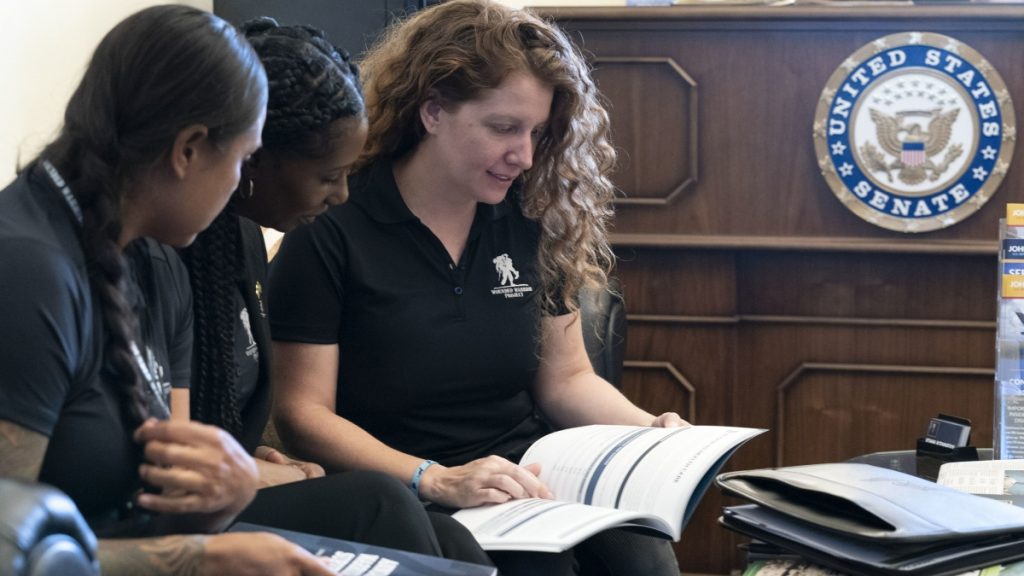Wounded war heroes often encounter unique life challenges in recovery and reintegration into society. Beyond initial medical intervention, other supportive services are crucial for physical health and emotional resilience, helping to foster a transformative journey to a new way of life. Embracing a comprehensive approach allows veterans to build meaningful, purpose-driven lives after injury.
1. Mental Health Support
War combat experiences and related injuries can cause negative psychological impacts such as PTSD, depression, and anxiety. In this regard, counseling and therapy services empower veterans with practical therapy tools to process traumatic experiences, manage stress, and develop coping strategies. Such care is pivotal in building emotional resilience, thus enhancing veterans’ quality of life and acceptance.
However, partnering with reputable Veteran Non-Profit Organizations like Wounded Warriors Family Support can significantly improve access to these vital veteran care services through a network of compassionate professionals dedicated to their healing and long-term emotional health. These VSOs often provide professional support ranging from soft interventions, such as peer mentoring and support groups, to specialized treatments like trauma-focused therapy and crisis management.
2. Assistance with Mobility Assistive Devices and Equipment
Mobility challenges can significantly impact wounded veterans’ independence and quality of life. Assistance with mobility aids, including advanced prosthetics, orthotic devices, wheelchairs, and other adaptive equipment, is transformative in addressing these limitations. These tools help restore physical functionality and empower veterans to engage in daily activities and pursue personal and professional goals.
Support from experienced veteran service organizations makes this process more accessible by offering expert guidance in selecting, fitting, and maintaining these devices to ensure optimal use. Dedicated Veteran Service Organizations like Wounded Warriors Family Support may provide vehicle grants for qualified injured veterans, enabling them to obtain modified vehicles tailored to their mobility needs. These combined efforts help veterans overcome physical barriers, fostering independence and improved quality of life.
3. Support to Caregivers for a Relaxed Environment at Home
People who are mandated to look after veterans may silently suffer under pressure due to sudden changes in their routines, unfamiliar roles, and demanding schedules. Thus, offering crucial support to these individuals helps create a vibrant, relaxed, and harmonious home environment for wounded veterans.
Reliable veteran non-profit organizations offer a safety net, helping with various chores, from childcare to home maintenance and errands. This allows caregivers to take necessary breaks to recharge, reducing stress and preventing burnout. It also helps create a positive environment where they can take better care of their loved ones after being rejuvenated, ensuring both the caregiver and veteran thrive in a balanced, caring atmosphere.
4. Housing and Home Adaptation Assistance
Wounded heroes may face a range of housing challenges, from adapting their living environment to their unique needs to experiencing homelessness. Hence, efforts to transform their homes for safe movement, comfort, and overall wellness are vital for reducing stress while enhancing comfort for veterans and their caregivers.
Homes designed with accessibility in mind can significantly enhance safety, independence, and quality of life. Wellness-focused home adaptations, such as ramps, lifts, and sensory-friendly environments, support veterans’ mental health by reducing feelings of dependence and frustration and encouraging a sense of autonomy.
Experienced veteran non-profit organizations like Wounded Warriors Family Support are invaluable in connecting families with essential resources, such as the HUD-VASH program. The program provides rental assistance and vital support for homeless veterans, helping them regain stable housing while maintaining dignity. Such an empathetic intervention helps veterans live dignified lives that enhance their well-being.
5. Retreats to Help Decompress Thoughts
For wounded war heroes and their families, the journey after service can be emotionally and physically taxing. Hence, it is crucial to provide opportunities for veterans and their families to clear their minds. Reliable non-profit veteran organizations offer programs designed to facilitate such experiences.
For example, Wounded Warriors Family Support provides retreats that foster family relationships, relaxation, and healing. These retreats offer these families a chance to step away from their usual environment and challenges and enjoy moments of respite away from home. The families can engage in guided relaxation, team-building exercises, and bonding experiences, all focused on emotional well-being.
By encouraging veterans to unwind in these supportive environments, the retreats help promote mental health, resilience, and a renewed sense of connection within the family. This time away allows veterans to decompress and strengthens family bonds essential for their ongoing recovery.
In conclusion, strategic and professional care for our wounded war heroes helps empower them to recover with dignity and confidence. By addressing their physical limitations, emotional damage, and social challenges, veterans can shine again- by regaining their strength and independence. However, partnering with reputable non-profit organizations like Wounded Warrior Family Support provides vital access to expertise and diverse resources, ensuring comprehensive support for the healing journey of veterans and their families.




